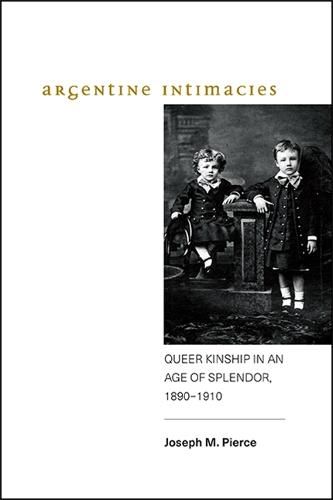Readings Newsletter
Become a Readings Member to make your shopping experience even easier.
Sign in or sign up for free!
You’re not far away from qualifying for FREE standard shipping within Australia
You’ve qualified for FREE standard shipping within Australia
The cart is loading…






This title is printed to order. This book may have been self-published. If so, we cannot guarantee the quality of the content. In the main most books will have gone through the editing process however some may not. We therefore suggest that you be aware of this before ordering this book. If in doubt check either the author or publisher’s details as we are unable to accept any returns unless they are faulty. Please contact us if you have any questions.
Winner of the 2020 Best Book in the Nineteenth Century Award presented by the Nineteenth Century Section of the Latin American Studies Association
As Argentina rose to political and economic prominence at the turn of the twentieth century, debates about the family, as an ideological structure and set of lived relationships, took center stage in efforts to shape the modern nation. In Argentine Intimacies, Joseph M. Pierce draws on queer studies, Latin American studies, and literary and cultural studies to consider the significance of one family in particular during this period of intense social change: Carlos, Julia, Delfina, and Alejandro Bunge. One of Argentina’s foremost intellectual and elite families, the Bunges have had a profound impact on Argentina’s national culture and on Latin American understandings of education, race, gender, and sexual norms. They also left behind a vast archive of fiction, essays, scientific treatises, economic programs, and pedagogical texts, as well as diaries, memoirs, and photography. Argentine Intimacies explores the breadth of their writing to reflect on the intersections of intimacy, desire, and nationalism, and to expand our conception of queer kinship. Approaching kinship as an interface of relational dispositions, Pierce reveals the queerness at the heart of the modern family. Queerness emerges not as an alternative to traditional values so much as a defining feature of the state project of modernization.
$9.00 standard shipping within Australia
FREE standard shipping within Australia for orders over $100.00
Express & International shipping calculated at checkout
This title is printed to order. This book may have been self-published. If so, we cannot guarantee the quality of the content. In the main most books will have gone through the editing process however some may not. We therefore suggest that you be aware of this before ordering this book. If in doubt check either the author or publisher’s details as we are unable to accept any returns unless they are faulty. Please contact us if you have any questions.
Winner of the 2020 Best Book in the Nineteenth Century Award presented by the Nineteenth Century Section of the Latin American Studies Association
As Argentina rose to political and economic prominence at the turn of the twentieth century, debates about the family, as an ideological structure and set of lived relationships, took center stage in efforts to shape the modern nation. In Argentine Intimacies, Joseph M. Pierce draws on queer studies, Latin American studies, and literary and cultural studies to consider the significance of one family in particular during this period of intense social change: Carlos, Julia, Delfina, and Alejandro Bunge. One of Argentina’s foremost intellectual and elite families, the Bunges have had a profound impact on Argentina’s national culture and on Latin American understandings of education, race, gender, and sexual norms. They also left behind a vast archive of fiction, essays, scientific treatises, economic programs, and pedagogical texts, as well as diaries, memoirs, and photography. Argentine Intimacies explores the breadth of their writing to reflect on the intersections of intimacy, desire, and nationalism, and to expand our conception of queer kinship. Approaching kinship as an interface of relational dispositions, Pierce reveals the queerness at the heart of the modern family. Queerness emerges not as an alternative to traditional values so much as a defining feature of the state project of modernization.